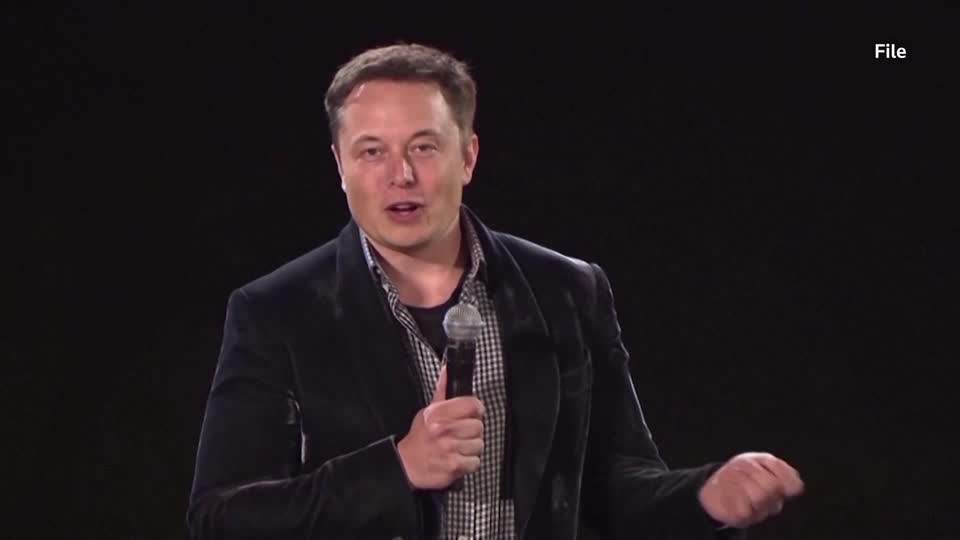
New York Times Article on Elon Musk Irks His Mom and Several South Africans
A New York Times article has caused fury amongst many South Africans calling it a “BS hack piece with no facts”. Sadly, many of those pointing out the errors, are actually proving the journalist right – that many white South Africans were “shrouded in misinformation” and oblivious to what was happening right in front of […]

A New York Times article has caused fury amongst many South Africans calling it a “BS hack piece with no facts”. Sadly, many of those pointing out the errors, are actually proving the journalist right – that many white South Africans were “shrouded in misinformation” and oblivious to what was happening right in front of them.
The main bone of contention in the article, which many are grabbing onto as proof the piece is untrue, is this sentence:
“Newspapers sometimes arrived on doorsteps with whole sections blacked out, and nightly news bulletins ended with the national anthem and an image of the national flag flapping as the names of white young men who were killed fighting for the government scrolled on the screen.”
Hundreds of South Africans have criticised the NYT for making up this “crock of propaganda $hit” and accused the journalist of being lazy and not doing proper research.
One of the most liked comments in response to the article is: “What a bs article. Nothing is based on fact and I lost interest at the part that states “large sections of the daily paper were blacked out”. Absolute bull crap. I’m 52 and lived in the same areas and would know. Privileged? Yes. SA flag and names of soldiers after every news bulletin? Bull crap again.”
The commenter in question would’ve been a young teenager at the time – in the mid-80s – and perhaps didn’t read the newspapers or watch the news. But sadly, there are others – much older – who are claiming these things never happened. They did. It’s just they either never noticed, or they’ve forgotten. Some, who remember, say perhaps it’s a “collective amnesia”.
In reply to one critic who said “I was there, I would know”, a South African man wrote: “I was there too, and while the article may be wrong on some counts, I can assure you that newspapers had to either blackout or not report real news of the day. The SABC was state propaganda and an untrustworthy source of information, but yes, they glorified the SADF and their casualties over the victims of apartheid.”
Another said “they certainly used to name the SADF guys that were killed in service. They would mention them at the end of SABC news bulletins I think. I know because we used to watch to see if they was anyone that we knew.”
The fellow South African he had replied to, who said he couldn’t recall these things ever happening, then admitted: “I never watched the news, so that explains that.” Which sums up perhaps so much, and what else may have perhaps been missed or gone unnoticed.
Richard Tustin said: “Pretty accurate description of 70s and 80s in SA. I lived in same suburb and went to Pretoria Boys High too. I remember the white privilege, English vs Afrikaans, living in ignorance of what was happening in townships, having to decide on conscription etc. I can empathise with him. That was reality at that time.”
Elon Musk’s mother responds to NYT article
For many others however, it wasn’t that the facts were incorrect (since many actually were correct), but that the article was strange, and seemed to have an agenda blaming Musk for things out of his control as a youngster. He left South Africa at 17.
Elon Musk’s supermodel mother, Maye Musk, sent a tweet to the New York Times pointing out: “In South Africa, if you publicly opposed apartheid, you went to jail. In Russia, if you publicly oppose the war, you go to jail. @nytimes are you going to blame children for decisions made by governments? #StopTheWar ??”
An American Tweeter said: “You, NYTs, are critiquing Elon as a child in this piece, how pathetic. I sure hope your CEO has his kids politically correct for whatever ridiculous hate army will twist their past they had no say in {sarcasm}”
Another accused the New York Times of basically saying: “Children are the reason for all atrocities.”
DA Writer, Jacques Maree, said: “Very odd take this. Imagine we started applying crude generalisations to all people based on the circumstances of their background, regardless of their own individual views and aspirations. There’s a name for that kind of thing – just escapes me now.”
Popular podcast co-host Saagar Enjeti said: “In this article NYT itself reports @elonmusk:
1. Had non-white friends growing up in apartheid SA
2. His own father was an ANTI-APARTHEID politician
3. He literally left so he didn’t have to serve in apartheid military
They still insinuate he is a racist.”
Even the New York Times’ tweet about the article was contentious, tweeting: “Elon Musk grew up in elite white communities in South Africa, detached from apartheid’s atrocities and surrounded by anti-Black propaganda. He sees his takeover of Twitter as a free speech win but in his youth did not suffer the effects of misinformation.”
Popular podcaster Trung Phan said: “Writer tweets that Elon was sheltered from consequences while the article literally says: 1) Elon wasn’t sheltered and 2) Elon got bullied for his anti-apartheid stance ?”
Alejandro Canosa added: “And he did grow up under the effects of government misinformation, probably one of the reasons he values freedom of speech.”
- Read The New York Times article and more SA comments here.
- Read more about Elon Musk’s life in South Africa here.
For further info, you can read this Mail & Guardian article: “In the 1980s, as the apartheid state imposed successive states of emergency, including censorship of the media, The Weekly Mail began using unusual methods to highlight the state’s attempt to clamp down on the news… The tactic for which The Weekly Mail is most famous was the use of black lines as a form of subversive self-censorship. It consisted of publishing an article that contained material that violated the censorship restrictions and then placing black lines over the “illegal” words, phrases, sentences or paragraphs”. The tactic was created after the Minister of Information “declared that the first edition of The Weekly Mail to be published under the new emergency regulations contained subversive material and ordered police to confiscate all copies of the newspaper from newsstands across the country. It was a devastating blow to the paper and revealed the lengths to which the government would go.”
Subsequently “the paper would appear with all “illegal” words and phrases blacked out… The Weekly Mail proceeded to use black lines on this front page and in other articles in this particular edition and in several subsequent editions.”
Writer tweets that Elon was sheltered from consequences while the article literally says: 1) Elon wasn’t sheltered and 2) Elon got bullied for his anti-apartheid stance 🤡 pic.twitter.com/MtUTeUYR7A
— Trung Phan (@TrungTPhan) May 5, 2022
